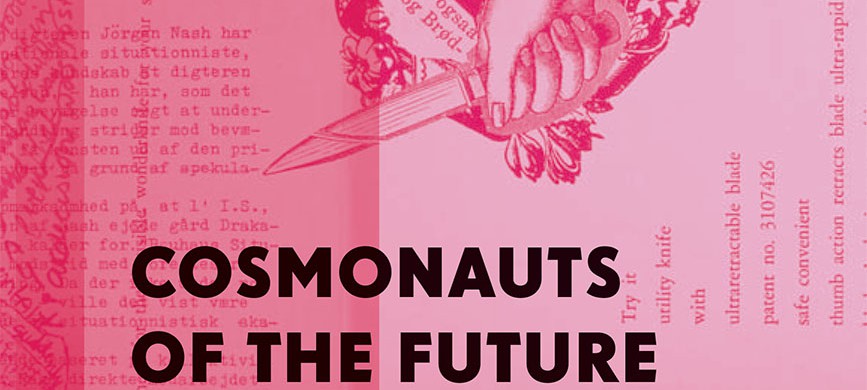-
Fuel to Fight
Fuel to Fight DS30: Test Dept Film & Book Event June 13 @ 6PM, firstsite, Colchester Followed by party at the Waiting Room The legendary London industrial noise musicians Test Dept are presenting a special screening of their film DS30 at the firstsite on the 13 June. Marking 30 years since the 1984-5 miners’ strike,…
-

Cosmonauts of the Future
Cosmonauts of the Future: Texts from the Situationist Movement in Scandinavia and Elsewhere Edited by Mikkel Bolt Rasmussen & Jakob Jakobsen First ever English-language anthology of the Scandinavian Situationists This is the first ever English-language anthology collecting texts and documents from the still little-known Scandinavian part of the Situationist movement. The book covers over three…
-
Retrograde London 2014
Retrograde London 2014 Tuesday 16th December 7pm @ The Horse Hospital Join us for an evening of discussion in the shadow of the NSK State… 30 years after the creation Neue Slowenische Kunst, join us for an evening exploring the aesthetic universe and the state created by these challenging Slovene artists. This special evening will…
-

State in Time
State in Time Edited by IRWIN Become a citizen of the first global state of the universe! The NSK State in Time emerged in 1992, evolving in the context of the dissolution of Yugoslavia and the transformation Neue Slowenische Kunst. Existing both as an artwork and a social formation, a state that encompasses all time…
-

Lives of the Orange Men
Lives of the Orange Men: A Biographical History of the Polish Orange Alternative Movement Major Waldemar Fydrych Foreword by the Yes Men Edited by Gavin Grindon In Communist Poland, Surrealism Paints You!!! Between 1981 and 1989 in Wroclaw Poland, in an atmosphere in which dissent was forbidden and martial law a reality, the Orange Alternative…
-
Future Che
Future Che John Gruntfest Future Che brings together, for the first time, the art, poetry and music of legendary free jazz saxophonist and composer John Gruntfest. Drawing on a critical theory of waves Future Che incites wave after wave of joyful insurrection. This book-art-music object includes an introduction by Richard Gilman-Opalsky and a live recording…
-

Precarious Communism
Precarious Communism: Manifest Mutations, Manifesto Detourned Richard Gilman-Opalsky How does one demonstrate the enduring relevance of a sacred text but to help it speak to present times? This is what churches do with the Bible and what Marxists do with the writings of Marx. Richard Gilman-Opalsky offers a book-length détournement of The Communist Manifesto as…
-
nanopolitics: an evening of bodies and books
nanopolitics, exhaustion, biopolitics: an evening of bodies and books London, October 9th 7pm @ no.w.here: Top Floor, 316-318 Bethnal Green Road, London E2 OAG This evening will present an encounter of three lines of thought and practice relating to politics, bodies, life, the social and the common. Doing so, we attempt to think across conceptions…



